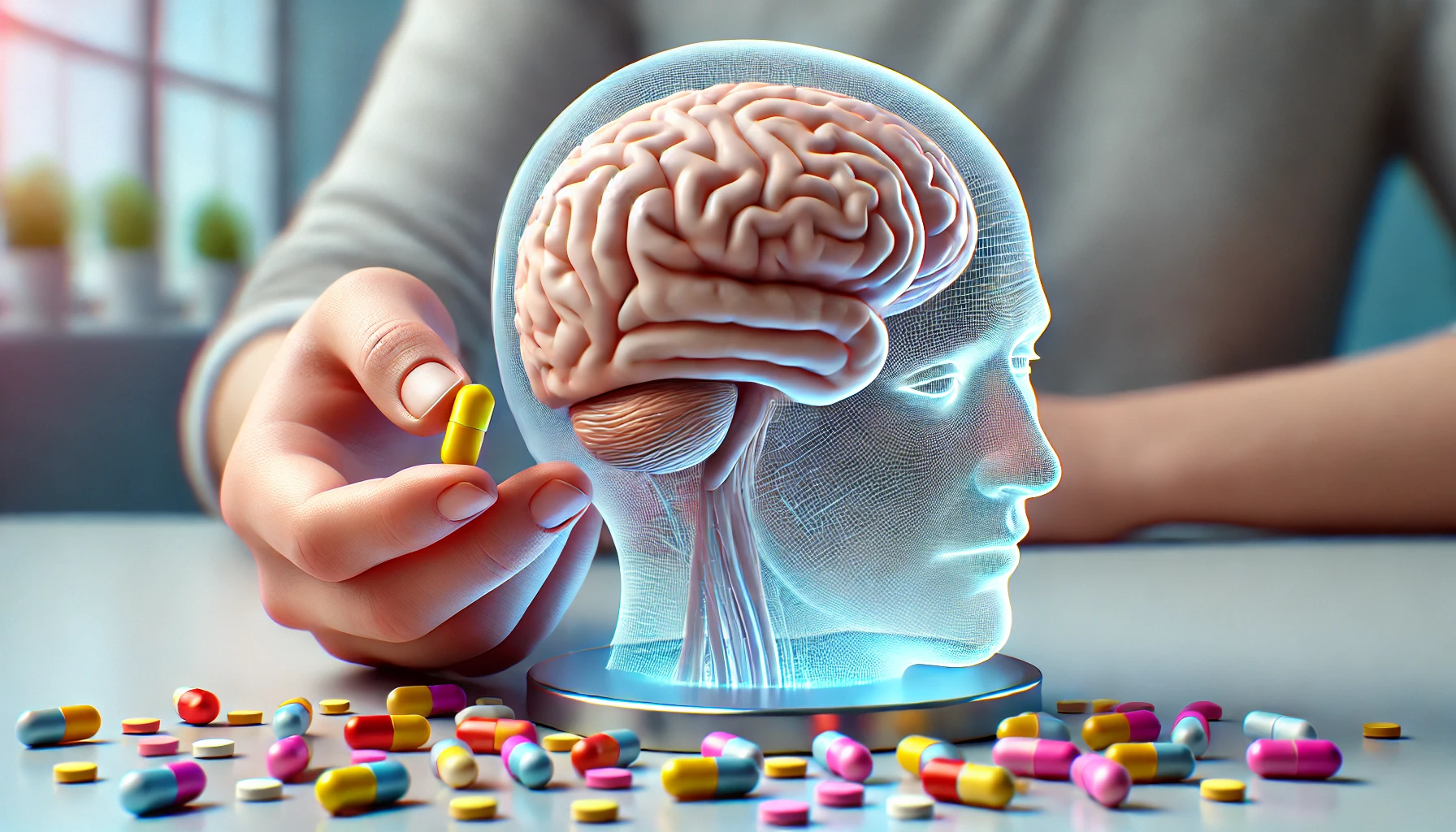Can ‘smart drugs’ or nootropics boost brain power?
Check out this answer from Consensus:
Nootropics or smart drugs hold promise for enhancing cognitive functions, particularly in individuals with cognitive impairments. However, their effectiveness in healthy individuals is still a subject of ongoing research. While natural nootropics appear to be safer, synthetic nootropics may pose risks, especially with long-term use. Further studies are needed to fully understand the potential and limitations of these cognitive enhancers.
Nootropics, commonly referred to as “smart drugs,” are substances that claim to enhance cognitive functions such as memory, creativity, and attention. These compounds have garnered significant interest both in the scientific community and among the general public. This article explores the potential of nootropics to boost brain power, examining their mechanisms, effectiveness, and associated risks.
Types of Nootropics
Nootropics can be broadly categorized into several groups based on their nature and effects:
- Classical Nootropic Compounds: These include well-known substances like piracetam, which was one of the first nootropics discovered1 7.
- Substances Increasing Brain Metabolism: These compounds enhance the brain’s metabolic processes, thereby improving cognitive functions1.
- Cholinergic Compounds: These nootropics work by influencing the cholinergic system, which is crucial for learning and memory2 4 5.
- Plant Extracts: Natural nootropics derived from plants such as Ginkgo biloba and Bacopa monnieri have shown promise in enhancing cognitive abilities1 8.
Mechanisms of Action
Nootropics exert their effects through various mechanisms:
- Cholinergic System: Many nootropics enhance the cholinergic system, which involves the neurotransmitter acetylcholine, crucial for memory and learning2 4 5.
- Dopaminergic Pathway: Some nootropics influence the dopaminergic pathway, which is associated with motivation and reward4.
- Antioxidant Properties: Plant-based nootropics often possess antioxidant properties that protect brain tissue from oxidative stress8 10.
- Neuroprotection: Certain nootropics have neuroprotective effects, potentially beneficial in conditions like Alzheimer’s disease3 6.
Effectiveness
The effectiveness of nootropics varies depending on the compound and the individual:
- Cholinergic Nootropics: These have shown effectiveness in treating cognitive deficits in conditions like Alzheimer’s disease and dementia2 3.
- Natural Nootropics: Plant-based nootropics have demonstrated cognitive enhancement in both animal and human studies, although their effects may take longer to manifest8 10.
- Synthetic Nootropics: Compounds like piracetam have been widely studied, but their effectiveness in healthy individuals remains controversial6 9.
Risks and Side Effects
While nootropics offer potential cognitive benefits, they are not without risks:
- Adverse Effects: Some nootropics, especially synthetic ones, can cause adverse effects such as psychiatric exacerbations in individuals with a history of mental disorders6 9.
- Long-term Safety: The long-term safety of many nootropics, particularly in healthy individuals, has not been well established5.
Can ‘smart drugs’ or nootropics boost brain power?
Timo Partonen has answered Uncertain
An expert from University of Helsinki in Psychiatry
Healthy people may start using nootropics or cognitive-enhancing drugs to maintain, restore or improve cognitive performance. A problem is that there is a broad range and thereby heterogenous group of cognitive enhancers which differ by the time scale they work on, that no single medication augments every cognitive function, and that some might enhance one but impair another cognitive function. There is the lack of strong evidence, because there is not yet established data on the indications for use, or how a cognitive enhancer might influence specific cognitive functions in a target population of healthy individuals. In addition, there is a key question whether a healthy person needs medication for cognition after all.
Can ‘smart drugs’ or nootropics boost brain power?
Joseph Paul Forgas has answered Extremely Unlikely
An expert from UNSW Sydney in Psychology
There is no reliable scientific evidence for the effectiveness of ‘smart drugs’, and they may have significant side effects. Advertising claims for these drugs are mostly misleading.
Can ‘smart drugs’ or nootropics boost brain power?
Timothy Hales has answered Unlikely
An expert from University of Dundee in Anaesthesiology, Pharmacology, Neuroscience, Physiology, Toxicology
In some cases so called smart drugs are used medically to treat individuals who suffer from cognitive impairment or have been diagnosed with attention deficit hyperactivity disorder. There is research evidence for these prescribed drugs being effective in improving cognitive performance in these circumstances. When it comes to the use of smart drugs to improve cognitive performance in individuals without impairment there is much less data available and the benefits are likely to be negligible. By contrast, the potential harms of taking psychoactive medications that have not been prescribed are clear from the literature. In my opinion it is likely that in most, if not all, cases the potential harms outweigh any marginal cognitive gains.
Can ‘smart drugs’ or nootropics boost brain power?
Mauro Tettamanti has answered Extremely Unlikely
An expert from Mario Negri Institute for Pharmacological Research in Anti-Ageing, Alzheimer’s Disease, Pharmacology
General answer is no, but “brain power” is a broad area. There are proofs that, on a very short term (hours or days), some drugs improve attention. As far as I know there is no (credible) proof on medium/long term positive effect on any kind of “brain power”.
Please be aware that any kind of drug, licit, illicit, “natural” or synthetic, can have immediate and/or delayed adverse effects, from mild to very severe.
